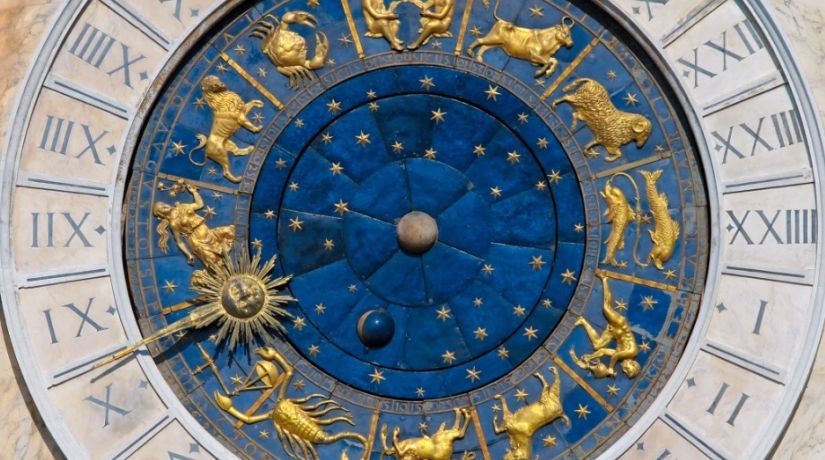.
Valentine's Day, What's Wrong With Showing Love?
“Valentine's Day has become a very romantic holiday despite its pagan origins. So what's wrong with celebrating this holiday?
Thinkstock
Valentine's Day is all about showing "love," giving a card or flowers or chocolates to a loved one. All of that's good, right? Wrong.
Valentine's Day is big business. According to the National Retail Foundation, Valentine's Day for 2012 added around $17.6 billion to the U.S. economy—making retail spending for this day the second-largest behind Christmas.
For a lot of people it's the holiday to express your love to someone special. According to Kemberly King, a business instructor at South University, young adults ages 25-34 spend the most on Valentine's Day gifts. Interestingly, men will outspend women—almost 2 to 1—with the biggest categories for all spending being restaurants, candy, romantic getaways and flowers.
A quick Web search for the origins of Valentine's Day will give you the basics of the accepted history of the day. A deeper search will acknowledge its pagan origins. The Good News magazine (sister publication of Vertical Thought) has published a variety of articles on both of these aspects of Valentine's Day. While Valentine's Day is the most promoted holiday after Christmas and Easter even among traditional Christian churches, it is definitely not a holiday with true Christian values.
How can "love" be wrong?
There's nothing wrong in showing love to others—after all, isn't that the most valued Christian characteristic? But what's been lost in how we go about it, and how we worship God for that matter, is whether we are actually following what God teaches in the Bible. It's like an automobile manufacturer tells you to put only gasoline in the fuel tank, but then you decide that diesel fuel is just as good! It just won't work.
Here's a quick review of the background of Valentine's Day—before exploring a deeper point about this holiday.
By most accepted historians, Valentine's Day was an adaptation by the Catholic Church of the ancient pagan Roman celebration of Lupercalia, a fertility festival. The Catholic Church updated and connected it to a "Saint" Valentine sometime late in the third century A.D. (though there is some confusion as to who this person actually was). It really took off commercially as a holiday in the late 1800s, promoted as a day to show your "love" to others—especially romantic love to your special someone.
So what's wrong with that? Here's the problem: Lupercalia was an immoral fertility festival also featuring gluttony and drunkenness. At the end of the festivities young men would draw the name of a young lady from a box and the two were considered a pair (sexually and otherwise) for the coming year.
As a festival Lupercalia was dedicated to the Roman god Pan, recognized as the god of fields, groves and wooded glens—and pictured as having the hindquarters, legs and horns of a goat. This pagan deity was connected to fertility and the season of spring. None of what is connected to the feast of Lupercalia is worthy of a Christian's observance.
But what's wrong with a little paganism?
What about showing love on Valentine's Day if I'm not doing it for pagan reasons? Isn't that okay? No, because the expression of that kind of "love" is still rooted in a former pagan holiday. True Christians must not adopt pagan festivals as holidays, for they are to strive to please God in everything they do.
Even when you think you're innocently observing a holiday like this, you're still advancing the origins and meanings of the day—especially from His perspective, as He certainly knows where it came from. God said not to do this. He told the Israelites entering the pagan land of Canaan:
"When the Lord your God cuts off from before you the nations which you go to dispossess, and you displace them and dwell in their land, take heed to yourself that you are not ensnared to follow them, after they are destroyed from before you, and that you do not inquire after their gods, saying, ‘How did these nations serve their gods? I also will do likewise.' You shall not worship the Lord your God in that way; for every abomination to the Lord which He hates they have done to their gods" (Deuteronomy 12:29-31, emphasis added).
When we merge pagan teachings with what God instructs through the Bible, we weaken the truth and violate God's clear command.
God's way is true love
Showing love as God instructs is not wrong—romantic love included. It's a good thing to express your love toward others through a card, flowers, dinner out or any number of other ways. But don't do it under the trappings of a pagan holiday like Valentine's Day! If someone is special to you, then do those things throughout the year rather than waiting until February 14th.
Our worship of God must first and foremost be according to His truth (John 4:24). Carryovers from pagan worship don't honor Him!
God is personified by the characteristic of love (1 John 4:8). Godly love is genuine outgoing concern for others as God would love them—not as a selfish love. Divine love is reflected in keeping God's commandments (1 John 5:3), including the Ten Commandments and instruction like that in Deuteronomy cited above. True Christians desire to faithfully observe God's own Holy Days (see Leviticus 23 for a list of them). Celebrating holidays like Valentine's Day in opposition to God's instruction does not honor or obey Him—no matter how well intentioned or innocent we believe it to be.
It does matter to God how we worship Him. He expects us to understand the difference between what He has declared holy and the profane teachings, customs and traditions masquerading as godly worship (Ezekiel 22:6).
For a more complete review of comparing traditional religious holidays to God's Holy Days, we recommend that you read our Bible study aid Holidays or Holy Days: Does It Matter Which Days We Observe?” From: https://www.ucg.org/vertical-thought/valentines-day-whats-wrong-with-showing-love
________
How do I connect with God?
“I love those who love me, and those who seek me diligently will find me.” ~ Proverbs 8:17
“We must be proactive, we must diligently reach out and seek God in order to find Him. We need to literally make time to get to know Him because without a deliberate, conscious effort it will probably never happen.
How did you get to know your spouse? You dated, right? Did you just wake up one day and find yourself in a relationship? No! One of you specifically asked the other to go on a date so you could spend time with each other. It's the only way to have a relationship with anyone, you must spend time with that person. We get to know God personally through developing a deep, meaningful relationship by spending time with Him...and the best place to find Him is in His holy word.
Q: Why does it seem so hard to find the time?
A: Work, kids, breakfast, school, dance class, Little League, homework, meals, baths, chores, shopping, our social life…on and on! These things can all get in the way. So now you must ask yourself, what do I want? A hectic, chaotic life...or the peace found only in Christ? We must prioritize our lives to include Him, make our daily reading as habitual as breakfast, and create a new habit. We have to create a habit of going to our Bible, first thing, as soon as we get up every, single morning.
By starting my day off with praise (thanking Him for everything), worship (praying and conversing), and study (reading His Word) my day will always go smoother. This is the thing that motivates me the most, the knowledge that my entire day will go better if I do this one little thing.
I’m just too busy…
B ut, you might ask, how can I possibly fit one more thing into my already crazy schedule? You need to start earlier. Start out by getting up just ten minutes earlier and go directly to your Bible. No-one is up, it's quiet, and it's just you and God…He will do the rest. Talk to Him, ask Him to help you…He will.
ut, you might ask, how can I possibly fit one more thing into my already crazy schedule? You need to start earlier. Start out by getting up just ten minutes earlier and go directly to your Bible. No-one is up, it's quiet, and it's just you and God…He will do the rest. Talk to Him, ask Him to help you…He will.
After you do this for a while you can gradually increase your time. How long is less important than being consistent every single day. I try to spend an hour, I call it my power hour! It’s the most important hour of my day. This is when I get juiced up with the energy I need to get though the day.
Here's how I start every day. I get up, go to the living room, sit down on my couch and I pray. I tell Him I'm sorry for messing up and how grateful I am for another day. I then tell Him everything that's troubling me. So often we complain to everyone about all our problems but forget to talk to God about them.
"And whatever things you ask in prayer, believing, you will receive.” ~ Matthew 21:22
I then ask Him to guide me through my Bible reading and impress me with the things I need to know today. I then sing a praise song or two, either one of my favorites or I just Google "praise songs" on YouTube and then sing along while I get a cup of coffee and start my day.
Why you ask, is it so important for me to have this daily devotion time every morning? Why can't I just pray when I need something or when I have the time? Ask yourself this one little question to find that answer. How long would I stay married if I approached my relationship with my spouse in the same manner... just called him/her when I needed something, or had some time to kill?
We must make our relationship with God our number one priority if we truly want to get closer to Him. He surely made us His biggest priority. Just think about what He gave up, how He suffered and died to have us with Him forever.
Make your life easier...
 I'm gonna be honest here, some days I'm beat, I don't even feel like getting out of bed, let alone doing this devotional time. And ya know what…these are the days that I need it the worst. So I lay in bed and I pray. I pray for the will to get up and do this. I ask for the desire to just put one foot in front of the other to make it to the living room. I then ask for Him to take the lead and help me through. And He always does just that....and moreover, He's happy to do it. What parent wouldn't be happy to help their child?
I'm gonna be honest here, some days I'm beat, I don't even feel like getting out of bed, let alone doing this devotional time. And ya know what…these are the days that I need it the worst. So I lay in bed and I pray. I pray for the will to get up and do this. I ask for the desire to just put one foot in front of the other to make it to the living room. I then ask for Him to take the lead and help me through. And He always does just that....and moreover, He's happy to do it. What parent wouldn't be happy to help their child?
“And you will seek me and find me, when you search for me with all your heart.” ~ Jeremiah 29:13
Now that you know how to find God, how can you grow closer to Him?”
From: https://thetruthmission.org/how-do-i-connect-with-god-2/
__________
Why did God change our diet?
“And the woman said to the serpent, we may eat the fruit of the trees of the garden; but of the fruit of the tree which is in the midst of the garden, God has said, you shall not eat it, nor shall you touch it, lest you die.” ~Genesis 3:2-3
“When you read the above verse, not much has changed. We are still listening to lies, and we are still defying Creator God with our disobedience. How sad is that?
So, why did God change our diet? He didn’t change our diet, per se, but rather added to it as was necessary due to our sin condition. God originally made our bodies to eat specific fruits (in the Garden of Eden). Then, He added vegetables (at the fall of man when Adam & Eve were kicked out of Eden). And finally, He added “clean meats” only after the flood because there were no vegetables or fruits available to eat.
But irregardless of what God has specifically created for us to eat, people still want what they want, they still want what God has told them not to eat! Just like Adam and Eve, they want what God has forbidden!
 People want their fat-filled hotdogs and sausages, ham and cheese, bacon and eggs! They don’t want to hear what the Bible says, nope! However, if we choose to eat these unclean foods; things God has not made for food, we will eventually get sick. We really need to see the big picture here. We need to understand that certain creatures were created solely as environmental filters. If we eat these creatures, we are ingesting the toxins that are in the animals that God created as toxin filters.
People want their fat-filled hotdogs and sausages, ham and cheese, bacon and eggs! They don’t want to hear what the Bible says, nope! However, if we choose to eat these unclean foods; things God has not made for food, we will eventually get sick. We really need to see the big picture here. We need to understand that certain creatures were created solely as environmental filters. If we eat these creatures, we are ingesting the toxins that are in the animals that God created as toxin filters.
Why would God make certain animals, and then tell us not to eat them? Let’s start with the bottom dwellers of the oceans for example. God made these creatures, not for food, but to filter the toxins out of the water. Clams and oysters, for example, filter the micro- contaminants from the water. Shrimp and crabs, lobsters and snails, as well as all the other things that live on the ocean floor, are there for clean up duty. They exist to eat the dead and decaying materials that sink to the bottom of the sea and to filter out the micro-contaminants as well.
 What exactly do you really know about these sea creatures? They are bottom dwellers, they troll the bottom of the seabed sustaining themselves on fish waste, as well as dead stuff that sinks to the seafloor. And if all that isn't enough to make you want to stop eating shrimp and crabs, how about the scientific fact that because they are water filters, they are literally chock-full of toxins! And, if that still isn't enough to make you want to give up consuming these nasty little things, how about the fact that God clearly tells us not to eat any environmental filters?
What exactly do you really know about these sea creatures? They are bottom dwellers, they troll the bottom of the seabed sustaining themselves on fish waste, as well as dead stuff that sinks to the seafloor. And if all that isn't enough to make you want to stop eating shrimp and crabs, how about the scientific fact that because they are water filters, they are literally chock-full of toxins! And, if that still isn't enough to make you want to give up consuming these nasty little things, how about the fact that God clearly tells us not to eat any environmental filters?
Think of it this way, would we deliberately suck on a pool or aquarium filter? Of course not! Wouldn’t we also have an objection to not wanting to eat a rat or a mouse? Absolutely! But for whatever reason, we’re fine with eating other animals that are equally unclean.
God gives us a very specific list of do’s and dont's when it comes to foods, but we've been conditioned through generations of compromise to be okay with eating these unclean and unhealthy foods. We think we've somehow found a way to overrule God’s perfect plan for us. Crazy, huh? We need to heed God's dietary commandments for our own good health, and learn how to eat clean!
What are clean and unclean meats…?
These dietary rules can be found in Genesis, Leviticus & Deuteronomy, but are mentioned throughout the Bible. According to the Bible, clean meat is defined as the meat of every animal that has a split, or cloven hoof in two, and chews the cud. Examples of clean meat include the ox (cattle), buffalo, sheep, goat, deer, gazelle, antelope and mountain sheep, just to name a few.
God gave us a long list of what to eat and, and, more importantly, what not to eat! God clearly tells us not to eat swine, in fact, He compares eating pork to eating rats and mice! And yet we continue to eat bacon, ham, sausage and so on. Would we ever eat a rat or a mouse? Of course not! God clearly tells us not to eat these things because they are scavengers, as are pigs as well. Also, they do not have sweat glands which makes them even more toxic because they are incapable of expressing toxins from their bodies.
Seeing God’s word play-out in the Bible is a great way to understand why He did certain things. And even more amazing, is how somethings happened before God ever mentioned them as laws.
For example, let’s take the story of Noah’s ark. How many of each animal did he take into the ark? Two? That's only partially correct. Genesis 7:2 tells us that God instructed him to take seven of each "clean" animal into the ark, revealing that the distinction between clean and unclean animals actually predates the dietary laws that God gave Moses on Mount Sinai, by centuries. These examples clearly show us that God knew all along what would and wouldn’t be acceptable for us to eat, as well as the fact that He would be adding to our diet. And more importantly, is the fact that the science surrounding these toxins never changes, nor does the law of God!
“For as many as have sinned without law will also perish without law, and as many as have sinned in the law will be judged by the law for not the hearers of the law are just in the sight of God, but the doers of the law will be justified.” ~Romans 2:12-13
Q: Are you ready to eat as God specifies?” From: https://thetruthmission.org/why-did-god-change-our-diet/
_______

 “On Feb. 14, couples around the world will express their love through Valentine’s Day gifts. But many deeply devoted Christian couples will not. Should you?
“On Feb. 14, couples around the world will express their love through Valentine’s Day gifts. But many deeply devoted Christian couples will not. Should you? “What was the problem with the Old Covenant, and what really changed with the New Covenant? What does the Bible say is new about the New Covenant?
“What was the problem with the Old Covenant, and what really changed with the New Covenant? What does the Bible say is new about the New Covenant?
 “Some of the customs may seem crazy or quaint, but what are the real origins and results of the New Year’s holiday?
“Some of the customs may seem crazy or quaint, but what are the real origins and results of the New Year’s holiday?












